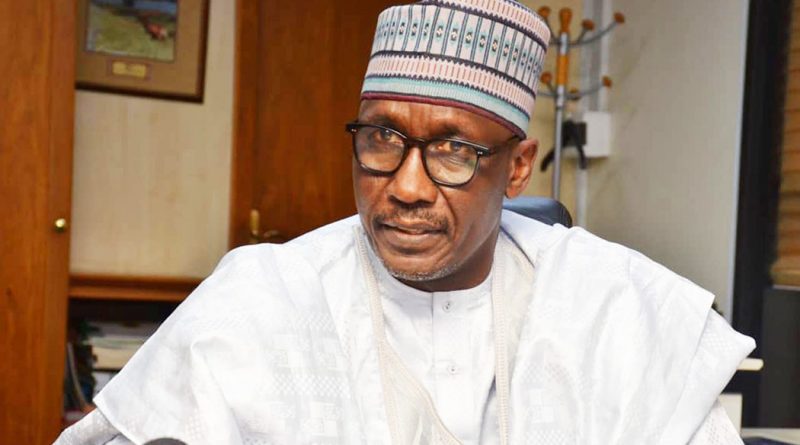Despite heavy financial implications NNPC ensured Nigerians did not pay more than N618 per litre of petrol in last one year – Report
The May 29 2023 announcement by President Bola Tinubu ending the regime of subsidy on petrol thrust on the Nigerian National Petroleum Company Limited(NNPCL) additional financial burden, an investigative report by Platforms Africa, a news website dedicated to coverage of issues in the oil and gas industry, has revealed.
According to the report, despite government officially declaring an end to subsidy payments, NNPCL continued to bear the burden of stabilizing the cost of the pump price of petrol.
“The announcement on May 29, 2023 by President Bola Tinubu during his inauguration that subsidy on petrol had ended proved to be a watershed for the company as it continued to import petrol for supply key players in the industry. A fact unknown to Nigerians is that since that presidential declaration announcing the end of subsidy in May last year, the NNPC takes an over N600 shock for every litre of petrol consumed by Nigerians.
This is obviously a humongous burden for one company to bear if multiple the figure by the millions of litres of petrol consumed daily in the country”, the report said.
The report noted that Whilst for one year the NNPCL struggled with the crushing burden of stabilizing supply of petrol and ensuring it’s availability through importation, other actors in the Nigerian state reap untold benefits for doing little or practically nothing.
“Before the ‘subsidy is gone’ declaration by President Tinubu, and the subsequent continued payment of under-recovery by the NNPCL, this burden was being shared by the government through its monthly allocations. Now, NNPC alone bears the load. Since the announcement of the removal of subsidy, the amount available for sharing among the Federal Government and the other two tiers of government blalloned exponentially.
Figures for 2023 show that the states shared a whopping N3 trillion with projections from the 2024 approved budget indicating that they are poised to receive N2.4 trillion more than they did in 2023. The bulk of this revenue shared at FAAC meetings by the tiers of government come from activities of NNPCL, which dovetail into oil exports, taxes, and other statutory allocations.Under the current revenue-sharing formula, the federal government gets 52.68 per cent of the revenue, states 26.72 per cent, and local governments 20.60 per cent”, Platforms Africa noted in the report.
Continuing, Platforms Africa noted that as the monthly allocations received by state governors in Nigeria skyrocket due to the announced end of subsidy regime, the Nigerian National Petroleum Company Limited (NNPCL) takes the bullet and carries the financial burden.
This clearly, poses an existential threat to operations of the company, increasing significantly, it’s debt overhang.
“Investigations show that the debt burden on the NNPCL will cross the $10 billion mark by the second quarter of 2025, barring the adjustment in present Nigerian financial structure. The national oil company had, after a long period of silence, on Monday admitted that it was owing importers of Premium Motor Spirit (PMS) $6 billion.
“Documents detailing deals between the company and some partners showed that the $6 billion debts would soon be dwarfed as the Nigerian state continues to push the burden of differentials between the landing cost and pump price of the product to it.
“Already, the under-recovery for the last quarter (September to December) of 2024 is expected to push the total spending on differentials above N6 trillion, according to the supplementary budget foŕ the year.
“At current rates, expenditure on fuel subsidy was, according to the initial projection by the Ministry of Finance, expected to reach 5.4 trillion naira by the end of 2024. This compares unfavourably with 3.6 trillion naira in 2023 and 2.0 trillion naira in 2022 according to a draft document published by Reuters on June 6, 2024”, the report noted.
The report noted that despite the strain on its finances occasioned by offsetting the differential between landing cost and pump price of petrol, NNPCL under the adroit management of Mele Kyari, it has continued to perform excellently as a business entity. Latest figures for Financial Year (FY) 2023 show a record-breaking N3.3 trillion in Net profit and revenue of N27.99 trillion.
“The figures show the NNPCL to be a well-managed organization thriving amid a huge financial burden under which most firms would have buckled under. It is certainly no easy fit to record a 27.6 percent increase in profit for the 2022 figure of N2.58 trillion in the midst of enormous burden it is shouldering. It is without doubt a commendable feat, the biggest in the PIST-PIA era.
“Understandably, Kyari is over the moon. The NNPCL’S Group Chief Executive Officer (GCEO ) who disclosed the figures at the company’s Annual General Meeting, said NNPCL’s sustained profitability reflects a corporation that is not merely surviving but thriving, demonstrating robust outcomes that underscore NNPCL’s operational efficiency and strategic foresight.
To put the achievement in proper context, the company with a gross profit of ₦7.04 trillion and an operating profit of ₦4.34 trillion, NNPCL achieved a net profit of ₦3.3 trillion at the end of 2023″, Platforms Africa noted.
The news medium noted that the impressive results signify a solid net profit margin of 14% and an operating profit margin of 18%, demonstrating the company’s adeptness at converting revenue into substantial profits. In addition, NNPC Limited’s 2023 financial results showcased a 12% return on equity (ROE) as of FY2023 and maintained a current ratio of 1:1, reflecting a balanced approach to asset and liability management.
The report commends NNPCL’s decision to adjust the pump price of petrol upwards noting that amid the chest-thumping and back-slapping by Kyari and his management team, the NNPCL helmsman recognized the necessity of taking cold, hard defisions, which though unpalatable to Nigerians, would ensure the survival of the company.
“With debts mounting and the burden on the company not abating, it has adjusted pump price of petrol from N617 to between N855 to N897 per litre.
As far as it goes, it is a sensible business decision anchored on the need to ensure survival of the company and to continue to guarantee sustainable supply of petrol in the country.
It goes without saying that the collapse of NNPCL as an organisation will have ripple effect not only in the oil and gas industry but will have ramifications for the security and survival of the nation”, the report said.

